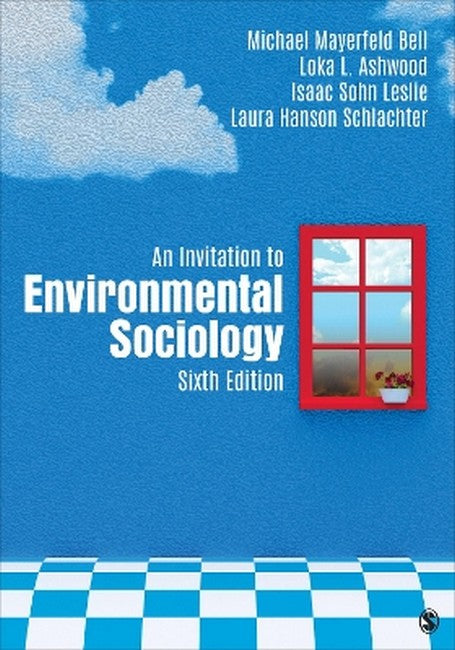Michael Mayerfeld Bell is Professor of Community and Environmental Sociology at the University of Wisconsin-Madison. For his day job, he is principally an environmental sociologist and a social theorist, focusing on dialogics, the sociology of nature, and social justice. These concerns for the world have led him to studies of agroecology, the body, community, consumption, culture, development, food, democracy, economic sociology, gender, inequality, participation, place, politics, rurality, the sociology of music, and more. He is also a part-time composer of grassroots and classical music, and a mandolinist, guitarist, and singer. Loka Ashwood is an assistant professor at the University of Kentucky in the Department of Sociology. She theorizes about democracy, the environment, and social action to pinpoint points of aggravation and openings for change. She analyzes specific corporate and regulatory structures that undergird dispossession of property and community in rural places. She works with people to explore creative pathways forward amid intense distrust and government neglect. Learn more at www.lokaashwood.com. Isaac Sohn Leslie is a Ph.D. candidate in sociology at the University of Wisconsin-Madison. Ike's primary research area is the sociology of global environmental and economic change, with a focus on developing food systems for a just climate transition. Their research in the U.S. and Argentina centers queer, feminist, and anti-racist perspectives on designing food chains that prioritize healthy ecological and social relations. Ike recently co-edited a Special Issue of Society & Natural Resources on gender, sexuality, and sustainability in U.S. farming. They are also a beginning farmer and active in queer farmer organizing. For more, visit www.isaacleslie.com. Laura Hanson Schlachter is a Ph.D. candidate in sociology at the University of Wisconsin-Madison. Her scholarship and teaching focus on environmental sociology, social movements, and economic sociology. As a mixed methods researcher, Laura has directed the first national survey about workplace democracy, interviewed activists seeding a regenerative economy in Appalachia, and collaborated with village leaders to improve walkability in rural Wisconsin. Laura has a background in inclusive economic development and an ongoing volunteer role at the Madison affiliate of 350.org. Her writing has appeared in peer-reviewed academic journals, policy reports, and neighborhood newsletters. Her current research about constructive strategies to rise to the challenge of the climate crisis and alternative ways of organizing work has been generously supported by the National Science Foundation and Corporation for National and Community Service. Learn more at www.lauraschlachter.com.
Request Academic Copy
Please copy the ISBN for submitting review copy form
Description
Preface About the Authors Chapter 1: Environmental Problems and Society Joining the Dialogue Environmental Justice Across Time Environmental Justice Across Social Space Environmental Justice Across Species The Social Constitution of Environmental Problems and Solutions Part I: The Material Chapter 2: Health and Justice The Material Basis of the Human Condition One Health One Justice Living Downstream: The Precautionary Principle Making Ties Chapter 3: Consumption and Materialism The Hierarchy of Needs Consumption, Modern Style Goods and Sentiments Goods and Community The Treadmill of Consumption Chapter 4: Money and Markets The Growth Compulsion The "Invisible Elbow" Overproduction and Underproduction The Constructed Market Rock Steady Farm and the Economics of Optimism Chapter 5: Technology and Science The Monologues of Technology and Science Technology as a Dialogue Technological Somnambulism Science as Dialogue Disasters, Fast and Slow Science and Technology as Political Chapter 6: Population and Development The Malthusian Argument Population as Culture The Inequality Critique of Malthusianism The Technologic Critique of Malthusianism The Demographic Critique of Malthusianism The Environment as a Social Actor Part II: The Ideal Chapter 7: The Ideology of Environmental Domination Christianity and Environmental Domination Individualism and Environmental Domination Heteropatriarchy and Environmental Domination The Difference That Ideology Makes Chapter 8: The Ideology of Environmental Concern Ancient Beginnings The Moral Basis of Contemporary Environmental Concern The Extent of Contemporary Environmental Concern Two Theories of Contemporary Environmental Concern The Dialogue of Environmental Concern Postscript Chapter 9: The Human Nature of Nature The Contradictions of Nature Nature as a Social Construction Environment as a Social Construction The Dialogue of Nature and Ideology Part III. The Practical Chapter 10: Mobilizing the Just Ecological Society Mobilizing Ecological Conceptions Mobilizing Ecological Connections Mobilizing Ecological Contestations The Pros of the Three Cons Chapter 11: Transitioning to the Just Ecological Society Democracy and Bureaucracy Legal Structure The Bottom and the Top Participatory Governance Local Knowledge Governing Participation Grounding Our Knowledge Soul Fire Farm and Just Ecological Transition Finding Our Balance Chapter 12: Living in the Just Ecological Society The A-B Split The Reconstitution of Daily Life Reconstituting Ourselves References Notes Index

